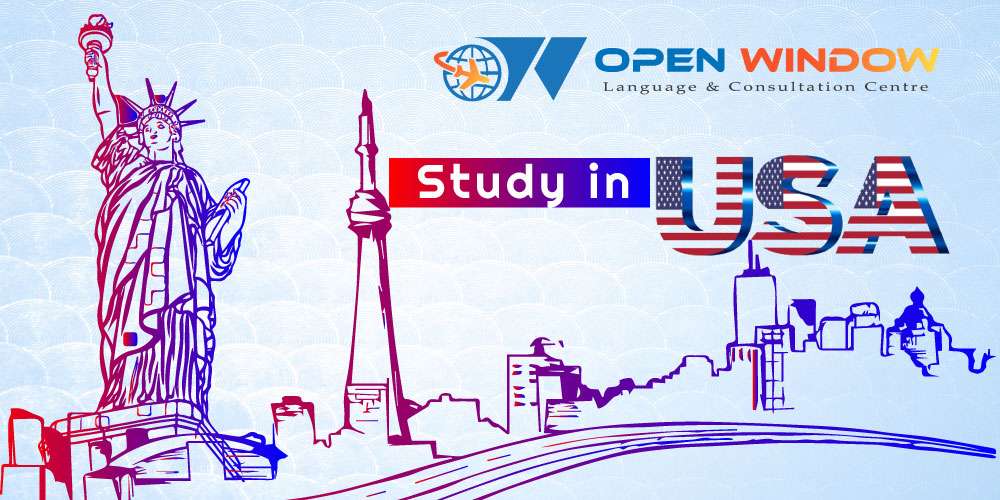Study in Czech Republic
Study in Czech Republic – The Czech Republic is a landlocked country located in Central Europe. It has a rich history and culture, and it’s also home to some of the oldest and most prestigious universities in Europe. The country has become a popular destination for international students due to its high-quality education system, low tuition fees, and affordable living costs. The Czech Republic also offers a wide range of academic programs, including medicine, engineering, social sciences, humanities, and more. Moreover, the country’s capital, Prague, is known for its beautiful architecture, vibrant nightlife, and cultural attractions, making it an ideal place for students to study and explore.
As for the education system in the Czech Republic, it is based on the Bologna Process, which means that degrees are recognized across Europe and the world. Most universities offer programs in English, and the country is particularly known for its science and engineering programs. International students are also allowed to work part-time during their studies, which can help cover living expenses and provide valuable work experience. Overall, studying in the Czech Republic is an excellent opportunity for students who want to receive a top-quality education, experience a unique culture, and explore a beautiful country in the heart of Europe.
Why study in the Czech Republic?

Do you want to study, work, travel, in other words, experience the perfect balance and live your best study-abroad adventure? Make a smart choice and come to study in the Czech Republic! Czech universities offer long-standing reputation, unique conception, and innovative specializations. What’s more, Czech research is one of the best in Europe!
These days, over 46,000 international students are studying in the Czech Republic; and as their universities continue to offer a ton of English-taught courses, more and more students are finding interesting options there. Moreover, if you decide to go there, you’ll find a large, exciting community of international students just like you.
Universities in the Czech Republic offer a wide range of programmes at the Bachelor’s, Master’s, and Ph.D. level, as well as summer and winter schools and language and preparatory courses. Each university is accredited, meaning their courses are recognized by companies and organizations all over the country and throughout Europe.
In the Czech Republic, you can find one of the oldest traditions of higher education, dating back to the 14th century. It probably also means that the universities are haunted.
Studying in the Czech Republic places you in the middle of Europe and gives you a great opportunity to travel all over the continent. During your studies, you can find a part-time job and after graduation, you can stay and start your own business. The Czech Republic can offer you not only the strategic location, but also a wide expat community and regional headquarters of many international companies.
Which universities and colleges to attend in the Czech Republic?
There are several dozen public and private universities all over the Czech Republic, and many of them offer English-taught degree programmes. They have a very old tradition and a strong reputation all over the world.
Charles University – the oldest in Central Europe – now enjoys a high ranking thanks to the fact it is one of the largest continuously operating universities in Europe.
How to Apply in Czech Republic
If you’ve decided to study a Master’s degree at a university in Czech Republic, you will have to gather the right documents to prove that you fit the university requirements. Provide complete personal information, previous qualifications, financial information, and a personal statement.
What documents do I need to provide to apply in Czech Republic?
To apply to a university in Czech Republic you will likely be asked to provide some of the following documents:
- birth certificate;
- recent photos;
- your passport or national identity card;
- one or more reference letters from past employers or teachers;
- copies of past diplomas or certificates, including your graduated Bachelor’s degree;
- academic transcripts;
- letter of intent;
- Curriculum Vitae;
- Some form of proof that you can support your stay in the country during your studies.
Depending on the subject or specialization of your chosen Master’s, you might also be asked to provide scores for additional tests like the GRE, GMAT or LSAT. Check if your programme requires any of these, or others.
The list of documents depends on the specific requirements of universities in Czech Republic so you might be asked to include additional documents. It’s also likely you’ll have to provide official English translations of your documents, or translations in the local language.
Prove your English skills

Because you’ll study an international degree in English, you’ll have to present a language certificate. Some popular options for international students are IELTS, TOEFL or C1 Advanced language certificates. You’ll have to meet a minimum language score set by the university, and your test scores shouldn’t be older than 1-2 years. If you don’t meet the minimum language requirements, you will have to improve your skills and scores by taking an English preparation course.
Application deadlines for Czech Republic
The deadlines for applying to a Master’s in Czech Republic are usually during summer (June-July), or in winter (January-February). Keep in mind that some universities don’t have application deadlines, which means you can apply whenever you are ready.
To avoid delays or missed deadlines send your required documents with plenty of time in advance.
Living in Czech Republic

Let’s take a closer look at tuition and living expenses in the Czech Republic:
Tuition fees for universities in the Czech Republic
There are two types of universities in the Czech Republic: public and private institutions.
- Public universities are cheaper; however, the tuition cost can vary depending on the language of instruction. If you enrol in a programme taught in the Czech language, you can study for free. For English-taught programmes you’ll pay between 0 and 20,000 EUR per year.
- Private universities are usually more expensive, because they’re free to set their own tuition costs.
Keep in mind that the Czech Republic does not offer special benefits to EU/EEA students. They will have to pay the same tuition as non-EU/EEA students.
Living costs in the Czech Republic
Compared to the rest of Europe, the Czech Republic is relatively inexpensive. But, living costs can also be different depending on where you go.
For example, going to a city like Prague is likely to be more expensive than some of the smaller, less-known cities. The average living costs are estimated at 300–650 EUR/month.
Here is a breakdown of the average living costs in the Czech Republic:
- Rent (single or shared apartment): 200–600 EUR/month
- Utilities: 170–190 EUR/month
- Monthly transportation pass (metro, bus, train, etc.): 20 EUR
- Three-course meal for 2 people at a mid-range restaurant: 24 EUR
- Milk: 0.70 EUR
- Bread: 0.90 EUR
- Cappuccino: 1.80 EUR
Work While Study in Czech Republic

International students in the Czech Republic are allowed to work part-time while they study. Non-EU/EEA students are allowed to work up to 20 hours per week during the academic year and full-time during school holidays. EU/EEA students have the same rights as Czech citizens and can work without any restrictions.
To work while studying in the Czech Republic, international students need to obtain a work permit. This can be obtained from the Czech Embassy or Consulate in their home country, or from the Czech Ministry of the Interior after arriving in the country. Students should also note that some jobs may require proficiency in the Czech language.
Overall, working part-time while studying in the Czech Republic can be a great way to earn extra money, gain valuable work experience, and improve language skills.
Romania At a Glance
| Course Duration | Intake | Application Fee | Requirements |
| 3 Years (Bachelor’s) 1-3 Years (Master’s) | February, March, September | 20 to 70 (EUR) | Academic-Abode 50% |
| Language Proficiency | Tution Fee (Yearly) | Living Cost (Yearly) | Visa Application |
| IELTS-6+, TOEFL-70+ | 5000 to 18000 (EUR) | 4000 to 9000 (EUR) | 104 (EUR) |
| Air Ticket | Processing Time | Part Time Work | Post Study Work Permit |
| 90000 to 140000 (BDT) | 4-6 Months | 20 Hrs | 1 Year |
Our Affiliated University List
| Sr No | University Name | City |
| 01 | Newton College, | Prague |



